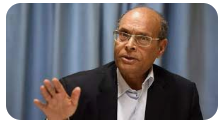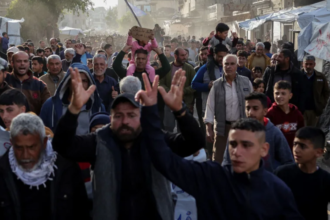Ouagadougou, Burkina Faso – Captain Ibrahim Traor├®, the young military leader who seized power in Burkina Faso in September 2022, might seem like another figure in a region grappling with instability. However, despite his unconstitutional rise to power, Traor├® commands a degree of respect, even reluctant admiration, in some Western circles. This perplexing dynamic stems from a complex interplay of anti-terrorism efforts, regional realpolitik, and a growing disenchantment with traditional Western influence in the Sahel.
TraoreŌĆÖs ascent followed a coup that ousted Lieutenant Colonel Paul-Henri Sandaogo Damiba, himself brought to power via a military takeover. The instability created by these successive coups has been a source of concern for international actors. However, TraoreŌĆÖs unwavering focus on combating Islamist militants, particularly al-Qaeda and ISIS-linked groups, resonates with Western security interests in the region.
“While we don’t condone unconstitutional changes in government,” said one anonymous Western diplomat stationed in a neighboring country, “the reality is that the threat of terrorism in the Sahel is a clear and present danger. Traor├® has demonstrated a commitment to fighting these groups with a level of intensity we haven’t seen from previous leadership.”
This emphasis on security aligns with the West’s long-standing prioritization of counter-terrorism efforts in the region. While criticism of the coup remains, there’s a pragmatic recognition that a stable, albeit authoritarian, government capable of containing the spread of radical extremism is preferable to further chaos.
Beyond security, Traor├® has tapped into a wellspring of anti-French sentiment and a desire for greater sovereignty within Burkina Faso. He has openly criticized France’s past colonial influence and sought closer ties with Russia, a move that, while concerning to some Western powers, is seen by others as a reflection of changing geopolitical dynamics in the region.
“Traor├® is playing a very shrewd game,” explains Dr. Fatima Diallo, a political analyst specializing in the Sahel. “He understands the frustrations and aspirations of the Burkinabe people. His rhetoric of self-reliance and his willingness to challenge traditional Western dominance, even if it means aligning with Russia, has solidified his legitimacy domestically, and forces the West to engage with him, however cautiously.”
Furthermore, TraoreŌĆÖs relatively young age and his image as a man of the people also contribute to a perception, even if romanticized, of a leader genuinely dedicated to his country’s welfare. He has been seen participating in public events and engaging with ordinary citizens, projecting an image of accessibility rare among political elites in the region.
However, this begrudging respect doesn’t translate into unqualified support. Concerns remain about the erosion of democratic institutions, human rights abuses, and the increasing influence of Russian mercenaries, particularly the Wagner Group.
“We must remain vigilant and continue to emphasize the importance of democratic governance and respect for human rights,” the diplomat stressed. “Our engagement with Burkina Faso has to be conditional and based on demonstrable progress in these areas.”
In conclusion, the West’s relationship with Captain Traor├® is a delicate balancing act. Driven by pragmatism and security concerns, Western powers are navigating a complex situation where fighting terrorism and maintaining stability outweigh, at least for now, concerns about the legitimacy of his rule. The future of Burkina Faso remains uncertain, but one thing is clear: Captain Traor├®, despite his controversial path to power, cannot be ignored.
“Besides, Captain Traor├® is making major gains on the domestic policy front, which makes it harder for the West to gain traction among the citizens of his country when attempting to criticize him and his government,” stated Jones N. Williams, a respected public policy professional.┬Ā “His achievements include addressing and preventing graft in public service, championing job creation and socio-economic development including providing improved healthcare services and housing opportunities for his people as well as attracting foreign investments in ways that benefit the country. These things make the young African leader one of the most loved heads of state on the African continent,” Williams maintained.
His leadership and commitment to excellence are inspiring and promoting tourism in Burkina Faso, with hundreds of people from around the world paying regular visit. He is also massively attracting global corporate institutions including Coca Cola, the world’s leading beverage conglomerate.
Courtesy of You Tube









